Charleston Currents #12.31 | June 15, 2020
SUMMER FLOWERS. Gardens across the Lowcountry are exploding with pinks, yellows, purples and all sorts of vibrant color. Have a favorite? Send us a photo (and tell us a little about it) to editor@charlestoncurrents.com. Make sure to put “Summer flowers” in the subject heading. Thanks!
 TODAY’S FOCUS: Thousands of new COVID-19 cases reported in last week
TODAY’S FOCUS: Thousands of new COVID-19 cases reported in last week
COMMENTARY, Brack: South Carolina needs to get on the right side of history no
IN THE SPOTLIGHT: Morris Financial Concepts, Inc.
MY TURN, Elmore: Failure on Medicaid expansion shows lawmakers don’t value black lives
NEWS BRIEFS: New amenities open at Folly Beach County Park
FEEDBACK: Send us your thoughts
MYSTERY PHOTO: Mysterious statue
CALENDAR: Charleston Symphony to present Concert for Equality
S.C. ENCYCLOPEDIA: Voting Rights Act
Thousands of new COVID-19 cases reported in last week
Staff reports | Just under a quarter of the state’s new coronavirus cases have been reported in the last seven days, according to figures released by state health officials, who are strongly urging residents to wear face masks to stop the spread of the disease.
As of Sunday, 4,520 new positive cases have been reported since June 8. All totaled, the state has reported 18,795 cases and 600 deaths from the virus since early March.
Meanwhile, the state has not taken steps to require the wearing of masks in public. Several organizations, however, issued a joint statement last week to “strongly urge” people to use social distancing and wear masks to stop the spread of the virus.
“There is rapidly growing medical evidence that the use of face masks along with social distancing can greatly reduce the transmission of the COVID-19 virus in public spaces and places where people at higher risk of severe illness and death from this virus are likely to be present,” according to the statement by the S.C. Department of Health and Environmental Control, the S.C. Hospital Association, the S.C. Medical Association and the S.C. Office of Rural Health.
“We must all commit to wearing face masks in public spaces — if we all wear them, we’ll all be protected. Since the beginning of this public health crisis, our organizations jointly committed to protect the health and welfare of all South Carolinians throughout this pandemic. We’re calling on you for your continued help.”
State officials also have not thwarted reopening of businesses, giving South Carolinians the freedom to move about despite data that show refraining from returning to normal life routines helps to quell the spread of the highly infectious virus. Gov. Henry McMaster said Wednesday he would not shutter businesses again or mandate wearing masks, citing the economy and enforcement issues.
“Freedom works only if there is personal responsibility,” said GOP Senate Majority Leader Shane Massey of Edgefield. “People are going to have to take more responsible actions to protect themselves and other people.” Read more.
In related news, the city of Charleston has allowed businesses to use sidewalk sandwich boards to advertise. The State newspaper reported lawmakers are divided on what to do to stop the spread of coronavirus.
How to protect yourself and your family
 State and federal health officials strongly recommend the following public health precautions to keep you safe:
State and federal health officials strongly recommend the following public health precautions to keep you safe:
- Wear a cloth mask when in public. It should cover your mouth and nose. Related: Why you should wear a mask | How to wear a mask.
- Maintain social distancing. Stay at least six feet from others at all times, particularly in public or in enclosed spaces.
- Avoid touching your face.
- Regularly wash your hands with soap. Related: How to wash your hands properly (Alton Brown video)
- Monitor your symptoms. Symptoms can appear two days to two weeks after exposure. What to watch for (CDC) | Watch for these symptoms (DHEC)
- Disinfect high-touch surfaces daily. Cleaning recommendations.
- Stay at home if you’re sick. If you’re worried or think you might be sick, stay at home.
- Get tested. If you think you’ve been exposed to COVID-19, get tested. Related: Where to get tested (link)
- If you think you’re sick, contact your health care provider. Related: List of virtual telehealth virtual care providers in South Carolina
What else you can do
- Communicate with your peers. Let them know electronically and by social media that you take the virus seriously and encourage them to follow the precautions listed above.
- Share scientific information. As businesses reopen, people may get a false sense that everything is back to normal. Let them know it isn’t by sharing resources with them.
- Don’t let down your guard. There’s a reason more people are getting infected. It’s because they’re not being as careful as they once were and are coming into more contact with others. Be vigilant.
- Urge state officials to require masks in public. Contact your state and local elected officials to urge them to stave a second wave of the disease by requiring masks in public.
-
- The phone number for Gov. Henry McMaster is 803.734.2100.
- Contact him by email by clicking here.
Coronavirus health resources
Here is a list of state and national resources that can help you make sense of the dangers and threats of the highly infectious novel coronavirus:
- How to protect yourself (Centers for Disease Control and Prevention)
- What to do if you are sick (CDC)
- A guide to staying safe as states reopen (The Atlantic)
- Find lots of COVID-19 data about South Carolina (DHEC)
- Daily monitoring worksheet for you and your family (DHEC)
Statehouse Report’s Lindsay Street contributed to this story.
As more people stay home to deal with the coronavirus crisis, people are looking for things to do. You can find some fun things to do online in our calendar section below, but let us also encourage you to FORWARD your issue of Charleston Currents to your friends and encourage them to subscribe. It’s got a great price, as you know: Free! We hope they’ll enjoy our coverage.
Now also would be a great time to contribute as we deal with the crisis. In advance, thank you.
BRACK: S.C. needs to get on the right side of history now
By Andy Brack, editor and publisher | If you want to understand the stark difference between business and government, look to NASCAR.
 Just two days after Bubba Wallace, the racing sport’s only black driver, said it was time to remove the Confederate flag from NASCAR’s events and properties, the sport’s operating company did so.
Just two days after Bubba Wallace, the racing sport’s only black driver, said it was time to remove the Confederate flag from NASCAR’s events and properties, the sport’s operating company did so.
Two days. To get rid of the painful symbol of the South that’s been a visible feature at racing events for generations.
A few things mark NASCAR’s decisive action:
First, it shows protests following the May 30 police choking death of George Floyd in Minneapolis are having impact. The country is at a civil rights tipping point. While other high-profile deaths by police or white nationalist terrorists pitted America’s soul, Floyd’s last gasps stirred a simmering anger that won’t be quelled. This time, Americans are screaming, for the equity and equality promised in the nation’s founding documents
Second, NASCAR’s quick movement on removing the Confederate flag comes at a time when racing fans will have time to process the controversial symbol that offends so many that others find a reminder of Southern heritage. It’s probably not a coincidence that no NASCAR fans can attend events because of coronavirus distancing. Let’s hope NASCAR officials enforce the ban, don’t back down.
Third, corporate bigwigs are keenly sensitive to what’s happening in the streets. They know if they’re on the wrong side of public perception on this new civil rights movement, their brands and bottom lines could be impacted negatively. What’s happening is a perfect storm for change in corporate America because of the unique blend of companies that want to do the right thing but also have a desire to stay in business.
Finally, elected officials better wake up to new political realities stemming from the protests. The people now protesting aren’t going to wait years for change as they did in the slog of getting the Confederate flag off the Statehouse dome and then off the Statehouse grounds. Right now, just over half of Americans support Black Lives Matter, making it more popular than Donald Trump or Joe Biden, observes Bloomberg editor Frances Wilkinson.
Just a few weeks ago, who would have thought there would be serious discussion about renaming American military bases named for Confederate leaders? Who would have thought Confederate monuments would topple across the South? Who would have thought the people of Mississippi would be having serious discussions about replacing its current state flag, which includes the Confederate battle symbol, with a new flag?
Now South Carolina, home of the first shots of a Civil War, needs to get on the right side of history by taking proactive steps to reduce inequities and promote equality. Legislators need to repeal the state’s Heritage Act, which keeps local communities from removing monuments, such as the more than 100 that glorify the lost cause of the Civil War. State lawmakers need to reexamine and refresh whole governing, education and health care systems to flush away oppression and privilege and replace them with inclusion and acceptance.
If state lawmakers don’t move as decisively as NASCAR and other corporate giants when they reconvene at the end of the month to deal with the state budget and coronavirus, they will face anger, resentment and impact at the polls in November. It wouldn’t be surprising, for example, if some incumbents without challengers (thanks to gerrymandering) suddenly find themselves with write-in opponents. And in South Carolina, we know write-in candidates can win. That’s how Strom Thurmond got into the U.S. Senate in 1954.
Demanding times demand thoughtful, decisive action. The American protests of spring aren’t going to fade away this time. Those in power need to keep these words in mind as they make decisions on our collective future:
“We hold these truths to be self-evident, that all men are created equal, that they are endowed by their Creator with certain unalienable Rights, that among these are Life, Liberty and the pursuit of Happiness.”
Amen.
Andy Brack is the editor and publisher of Charleston Currents and Statehouse Report. He is publisher of the Charleston City Paper. Have a comment? Send to: editor@charlestoncurrents.com
Morris Financial Concepts, Inc.
 The public spiritedness of our sponsors allows us to bring Charleston Currents to you at no cost to readers. Morris Financial Concepts, Inc., is a nationally recognized, fee-only financial consulting firm that helps you identify and align your resources, values and goals to achieve an enriched life.
The public spiritedness of our sponsors allows us to bring Charleston Currents to you at no cost to readers. Morris Financial Concepts, Inc., is a nationally recognized, fee-only financial consulting firm that helps you identify and align your resources, values and goals to achieve an enriched life.
We do not accept commissions or compensation related to the products and service we recommend. Our counsel is based solely on what we believe is best for each client.
- Learn about founder and Charleston Currents columnist Kyra Morris and more about the consultancy at: Morris Financial Concepts, Inc.
- To meet all of our underwriters, click here.
Medicaid failure shows lawmakers don’t value black lives
By Brian Elmore, special to Charleston Currents | For every George Floyd and Tamir Rice, Breonna Taylor and Walter Scott, thousands of African-Americans and people of color die silently each year due to a lack of access to health care.
The disparities in mortality from COVID-19 in South Carolina have pulled back the curtain on health care inequities in South Carolina. According to data from the state Department of Health and Environmental Control, African-Americans account for 49 percent of deaths from COVID-19 in South Carolina, despite representing only 28 percent of the state’s population.
The causes of this striking disparity in mortality are plentiful. African-Americans are more likely to work in the types of essential jobs that put them in contact with potentially-infected individuals. African-Americans in South Carolina are also more likely to have the types of co-morbidities that place them at additional risk for severe cases of the virus. African-Americans in our state are more than twice as likely to die from diabetes as whites; heart disease and hypertension also disproportionately affect the African American population. Maternal mortality and infant mortality among African Americans in our state are among the highest in the nation.
These sobering statistics illustrate almost apartheid-like health outcomes between the haves and the have-nots, between those able to obtain health insurance and those who aren’t, and between communities replete with hospitals and doctors compared to those mainly rural, African-American communities without. These disparities reflect a historical lack of access to healthcare for South Carolina’s minorities. African-Americans are almost twice as likely to lack health insurance as whites.
But it does not have to be this way. Since 2013, our legislators have consistently refused to expand Medicaid, creating a gap of hundreds of thousands of people who have no realistic access to healthcare in our State. Individuals in this gap do not currently qualify for Medicaid, nor do they qualify for subsidies on the healthcare exchanges.
By expanding Medicaid, an additional 312,000 South Carolinians would gain access to health care, disproportionately African Americans and people of color. From 2014-2017, an estimated 15,600 deaths could have been avoided in states that did not expand Medicaid. During this time, over 700 South Carolinian lives would have been saved had our legislators been decent enough to pass a Medicaid expansion.
State legislators, such as S.C. Sen. Tom Davis, R-Beaufort, have argued that the cost of enacting a Medicaid expansion is too high. According to the S.C. Hospital Association, expanding Medicaid would have cost South Carolina an estimated $465 million since 2014. In that same time, the federal government would have contributed $11.7 billion towards the cost of expanding Medicaid, and would continue to fund 90 percent of the costs in the future. In many Medicaid-expansion states, such as Arkansas and Kentucky, the financial gains from increased health-care coverage offset the costs incurred by the states.
In effect, South Carolinians pay federal taxes to subsidize other state’s Medicaid expansion, while we miss out on the benefits. Failing to expand Medicaid is profoundly immoral and economically illogical.
Look at a map of the states which have refused to expand Medicaid, and you will see the rough contours of the old Confederacy. The historical legacy of racism, disenfranchisement and slavery in our state is reflected in modern times through this lack of access to health care.Ninety percent of individuals in this coverage gap live in the South, and African Americans are more than twice as likely to be in this gap than whites. By refusing to expand Medicaid, our state legislators have denied health care primarily to poor people of color. The Confederacy lives on.
Expanding Medicaid in our state will not solve these disparities—this will require the deliberate dismantling of the systemic racism inherent in our society, economy and health care system. It will require a health care system that guarantees universal access to medical care, regardless of ability to pay. But a Medicaid expansion can begin the process of chipping away at these disparities and will tangibly save South Carolinian lives.
In response to the alarming rates at which African-Americans in our state are dying from COVID-19, Brian Symmes, spokesman for S.C. Gov. Henry McMaster, “With regard to Medicaid expansion, I think that this simply isn’t the time to talk about politics like this.” If a pandemic that cruelly targets African Americans at alarming rates is not the time to discuss health care equity, then when is?
Brian Elmore, a medical student at MUSC, is founder of a student chapter of Physicians for Human Rights. He is from Florence.
New amenities open at Folly Beach County Park
Staff reports | Folly Beach County Park now features big improvements that will help you enjoy a popular park even more.
In addition to new boardwalk access paths from the parking lot to the beach, there are outdoor showers, changing stations and improvements to the Pelican Watch Pavilion.
But the biggest change is the new Dunes House that replaces a structure destroyed in 2011 during Hurricane Irene. The Dunes House features eight covered picnic tables, restrooms, concessions, a lifeguard room, offices and a large viewing deck so visitors can enjoy the park’s sunset and ocean views.
Folly Beach County Park, located at the south end of Folly Beach, is scheduled to remain open until sunset daily. Learn more about the park at ccprc.com.
Also in the news:
![]() Five days to comment. The initial public review period for the U.S. Army Corps of Engineers’s Charleston Peninsula Coastal Flood Risk Management Study will close on Friday. Citizens are encouraged to review the current Draft Feasibility Report and Environmental Assessment, available here, and to provide feedback online here
Five days to comment. The initial public review period for the U.S. Army Corps of Engineers’s Charleston Peninsula Coastal Flood Risk Management Study will close on Friday. Citizens are encouraged to review the current Draft Feasibility Report and Environmental Assessment, available here, and to provide feedback online here
Charleston Nine remembrance. The Charleston Fire Department will commemorate the 13th anniversary of the deaths of nine city firefighters at 7 p.m. June 18 at the memorial park dedicated to them. It is located at 1800 Savannah Highway in West Ashley. The event will be closed due to the coronavirus pandemic and will be limited to those conducting the ceremony and providing remarks. The program will, however, be live-streamed on the Charleston Fire Department Facebook page, @charlestonfire.
Redux exhibit now open. Redux Contemporary Art Center will present Creative Corridors: The Annual Redux Studio Artist Exhibition through July 24. The Annual Studio Artist Exhibition is an opportunity for Redux resident artists to showcase a sample of their work, as it relates to a specific prompt and is curated as a group exhibition in Redux’s main exhibition space. The exhibition is open Mondays and Wednesdays from 11 a.m. to 4 p.m. and Fridays from 11 a.m. to 3 p.m. More.
- Have a comment? Send to: editor@charlestoncurrents.com
Don’t try to rewrite history
To the editor:
![]() Re: “Don’t be timid about reform; Ask for more,” Brack, 6/8
Re: “Don’t be timid about reform; Ask for more,” Brack, 6/8
While I don’t agree with Calhoun’s politics, taking his statute down isn’t going to change anything. I see that move as an attempt to rewrite history. Not good.
I think we should try and figure out why a peaceful young protestor goes from obeying the law till the glass breaks and then into the store they go to take (loot) anything they can grab.
— Joe Mendelsohn, Charleston, S.C.
Got something to say? Let us know by mail or email
We’d love to get your impact in one or more ways:
Send us a letter: We love hearing from readers. Comments are limited to 250 words or less. Please include your name and contact information. Send your letters to: editor@charlestoncurrents.com. | Read our feedback policy.
Tell us what you love about the Lowcountry. Send a short comment – 100 words to 150 words – that describes something you really enjoy about the Lowcountry. It can be big or small. It can be a place, a thing or something you see. It might be the bakery where you get a morning croissant or a business or government entity doing a good job. We’ll highlight your entry in a coming issue of Charleston Currents. We look forward to hearing from you.
Mysterious statue
Here’s a Lowcountry-area statue, but who does it depict, where is it and what’s his story (briefly)? Send your best guess to editor@charlestoncurrents.com. And don’t forget to include your name and the town in which you live.
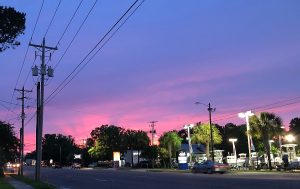 Our most recent mystery, “Beautiful sunset,” featured a pink glow along Savannah Highway in the West Ashley part of Charleston near the Early Bird Diner.
Our most recent mystery, “Beautiful sunset,” featured a pink glow along Savannah Highway in the West Ashley part of Charleston near the Early Bird Diner.
Only four people correctly identified the photo. A big whoop to: Chris Brooks of Mount Pleasant; Marnie Huger of Richmond, Va.; George Graf of Palmyra, Va.; and Kristina Wheeler of West Ashley.
- Send us a mystery: If you have a photo that you believe will stump readers, send it along (but make sure to tell us what it is because it may stump us too!) Send it along to editor@charlestoncurrents.com.
Charleston Symphony to present Friday concert for equality
Staff reports | The Charleston Symphony Orchestra at 7:30 p.m. Friday will live-stream a special program, “Call and Response: A Concert for Equality,” to promote community unity and understanding.
“What an orchestra does best is listen, and real listening only happens when we allow the voices of others to briefly be more prominent than our own,” said assistant CSO conductor Kellen Gray in a statement. “Our community has many voices that deserve the stage and this program addresses that directly, by giving stage to voices muted by inequality, those that empathize and want to help, and those who see how inequality has wounded our community.”
Due to the pandemic, the program will be performed in an empty hall at the Gaillard Center. You can watch it via the symphony’s website: CharlestonSymphony.org.
The concert will feature music of African American and Afro-British composers interspersed with three testimonials. Guest speakers include Grammy Award-winner Charlton Singleton, CSO Composer in Residence and Charleston native Edward Hart, and Coastal Community Foundation President and CEO Darrin Goss Sr. The performance will include orchestral works by William Grant Still, George Walker, Samuel Coleridge-Taylor and Adolphus Hailstork. The program will conclude with a special performance from Charleston’s own Ranky Tanky. More info.
Also on the calendar:
![]() Safe Sounds at Firefly. You can enjoy these shows at a socially-distanced concert series every Friday and Saturday night through mid-July:
Safe Sounds at Firefly. You can enjoy these shows at a socially-distanced concert series every Friday and Saturday night through mid-July:
- June 19 & June 20 – Whiskey Run and Lauren Hall
- June 26 & June 27 – The Majestics
- July 3 – The Midnight City Band. (No Safe Sounds concert on July 4.)
- July 10 & July 11 – The Yacht Club
- July 17 & July 18 – The Reckoning
- July 24 & July 25 – TBA with special guest
Tickets for the events are limited to 500 and no more than four tickets can be purchased at a time. Each set of four tickets will secure a spot in a 10-by-10 square, separated on all sides by 8 feet. Guests are encouraged to bring blankets and chairs to enjoy the concert. You are not allowed to bring dogs, children, and outside food and drink. Tickets are available now to anyone 21 and over at citypapertickets.com. Shows will begin at 7 p.m., with doors at 6 p.m.
Aquarium to open new experience on July 4. “Monsters” is a new experience offered starting July 4 at the S.C. Aquarium. “From micro to mega, explore the Aquarium in a whole new way,” according to promotional material. You can also participate online in the attraction’s daily Nature Challenge, a virtual “Passport to Fun” and a “Moment of Zen” that has started. The aquarium also offers daily education classes at 10 a.m. and 2 p.m., Monday to Friday, via its virtual network. Learn more.
Online offerings. Spoleto at Home offers virtual programming through June 5 that you can enjoy from the comfort and safety of your own living room! Tune in for original concerts, best-of Chamber Music hits, and insightful conversations with Festival artists. All programs are free to experience; no tickets required. Click here to find more fun stuff to do.
- Gibbes Museum. You can enjoy lots of local art offerings through the website and social media accounts of the Gibbes Museum. At 10 a.m. on weekdays, the museum posts virtual readings and workshops on Facebook. Find more online.
- Avian Conservation Center. Access videos and live streaming presentations online to learn about what’s going on at the Center for Birds of Prey.
- More. You can visit 500 museums across the world online through this Google amalgamation of sites.
If you have any online events, drop us a line (editor@charlestoncurrents.com) and make sure to put “Online event” in the subject line. Similarly, if you’ve got cool ideas for stuff to do while in isolation at home, send them our way.
Voting Rights Act
The Voting Rights Act of 1965 was enacted to reverse the effects of state disenfranchisement and secure equal voting rights for all citizens. The legislation was a victory for racial minorities, especially African Americans in the South, because many had experienced social opposition to their voting.
After Reconstruction, the Ku Klux Klan and other organizations used violence and intimidation to limit African American voter turnout. South Carolina’s African Americans faced legal challenges as well. Beginning in 1882, the Eight Box Law functioned effectively as a literacy test. In 1896 statewide party primaries that barred African American participation were introduced. With South Carolina firmly under white Democratic control, African Americans were excluded from politics, and voter registration plummeted: in October 1896 only 5,500 African Americans were registered to vote in the state.
In the presence of a growing national civil rights movement, President Lyndon Johnson issued a call for strong voting rights laws in 1965. The Voting Rights Act, signed into law in August 1965, suspended literacy tests and provided for the appointment of federal examiners with the power to register qualified citizens to vote. South Carolina immediately challenged the law’s constitutionality in South Carolina v. Katzenbach. South Carolina, supported by briefs from other states, argued that Congress could not authorize federal officials to impose themselves on state affairs in the manner outlined by the act. The United States Supreme Court rejected that argument by an eight-to-one vote, declaring that Congress acted within its authority to enforce the goals of the Fifteenth Amendment. For the court’s majority, widespread discrimination constituted “exceptional conditions” that allowed Congress to pass legislation to protect voting rights.
On being signed into law, the act had an almost immediate impact. In South Carolina the number of American Americans registered to vote rose dramatically. In 1964, 38.7 percent of voting-age African Americans were registered. Four years later that number climbed to 50.8 percent. There were also gains in African American political participation. Twelve black South Carolinians attended the 1968 Democratic National Convention as delegates. In 1970 three African Americans were elected to the General Assembly, the first black legislators since the 1890s. Less than a decade after the passage of the act, the number of African American legislators had risen to thirteen.
According to the United States Justice Department, the Voting Rights Act of 1965, as extended in 1970, 1975, and 1982, may be the most significant civil rights legislation passed by the United States Congress. Now blacks in South Carolina register to vote at about the same rate as whites. Enforcement of the act provides opportunities to challenge election methods that may weaken majority voting strength—for example, at-large elections, racially gerrymandered districting plans, or runoff requirements. Recently, leading civil rights organizations, through the National Commission on the Voting Rights Act, conducted hearings across the nation about the status of African American, Latino, Native American, and Asian American voters. Its report, presented to Congress in February 2006, documented the act’s achievements as well as the need for the reauthorization of those portions of the act due to expire in 2007.
— Excerpted from an entry by Kevin Fellner. This entry may not have been updated since 2006. To read more about this or 2,000 other entries about South Carolina, check out The South Carolina Encyclopedia, published in 2006 by USC Press. (Information used by permission.)
If you like what you’ve been reading, how about considering a contribution so that we can continue to provide you with good news about Charleston and the Lowcountry. Interested? Just click the image below.
OUR UNDERWRITERS
Charleston Currents is an underwriter-supported weekly online journal of good news about the Charleston area and Lowcountry of South Carolina.
- Meet our underwriters
- To learn more about how your organization or business can benefit, click here to contact us. Or give us a holler on the phone at: 843.670.3996.
OUR TEAM
Charleston Currents offers insightful community comment and good news on events each week. It cuts through the information clutter to offer the best of what’s happening locally.
- Mailing address: 1316 Rutledge Avenue | Charleston, SC 29403
- Phone: 843.670.3996
Charleston Currents is provided to you weekly by:
- Editor and publisher: Andy Brack, 843.670.3996
- Contributing editor, common good, Fred Palm
- Contributing editor, money: Kyra Morris
- Contributing editor, Palmetto Poem: Marjory Wentworth
- Contributing editor, real estate: Digit Matheny
- Contributing photographer: Rob Byko
- Charleston Currents also uses content from the outstanding staff at the Charleston City Paper, a sister publication.
SUBSCRIBE FOR FREE
Subscriptions to Charleston Currents are free.
- Click here to subscribe.
- Unsubscribe. We don’t want to lose you as a reader of Charleston Currents, but if you must unsubscribe, you will have to do it through the email edition you receive. Just go to the bottom of any of your weekly newsletters and click the “unsubscribe” function. If that doesn’t work, please send us an email with the word “unsubscribe” in the subject line.
- © 2008-2020, City Paper Publishing, LLC. All rights reserved. Charleston Currents is published every Monday by City Paper Publishing LLC, 1316 Rutledge Ave., Charleston, SC 29403.



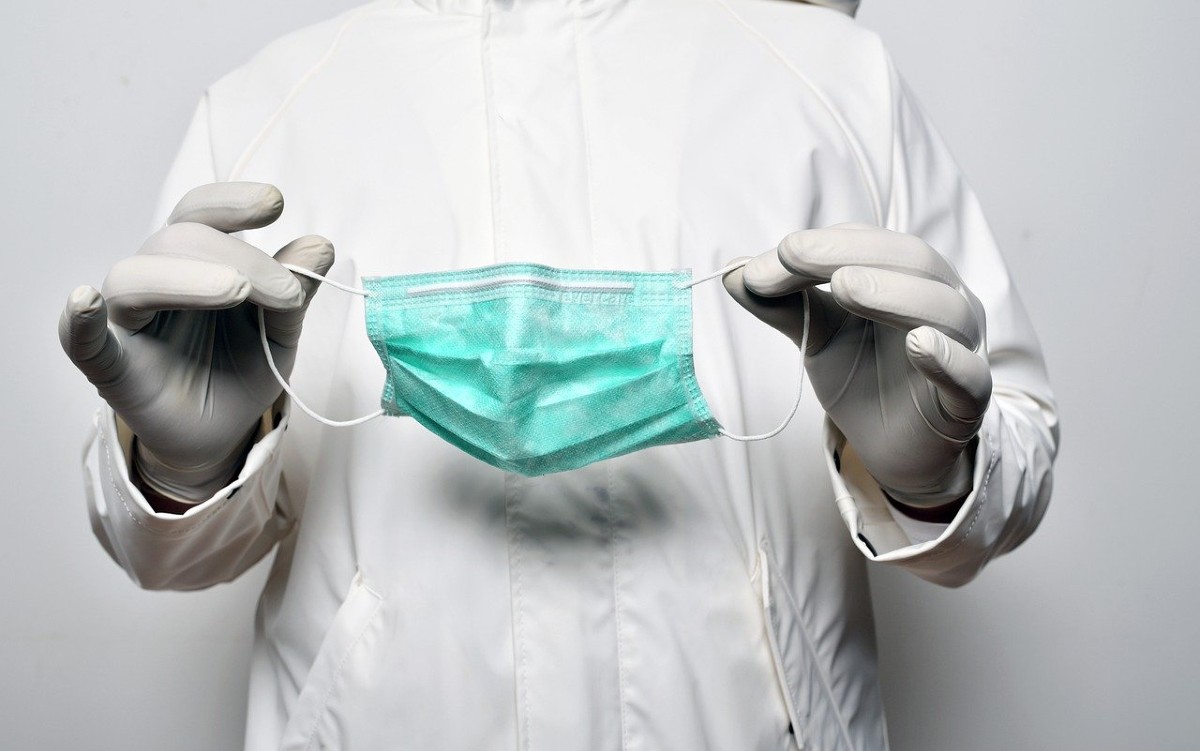

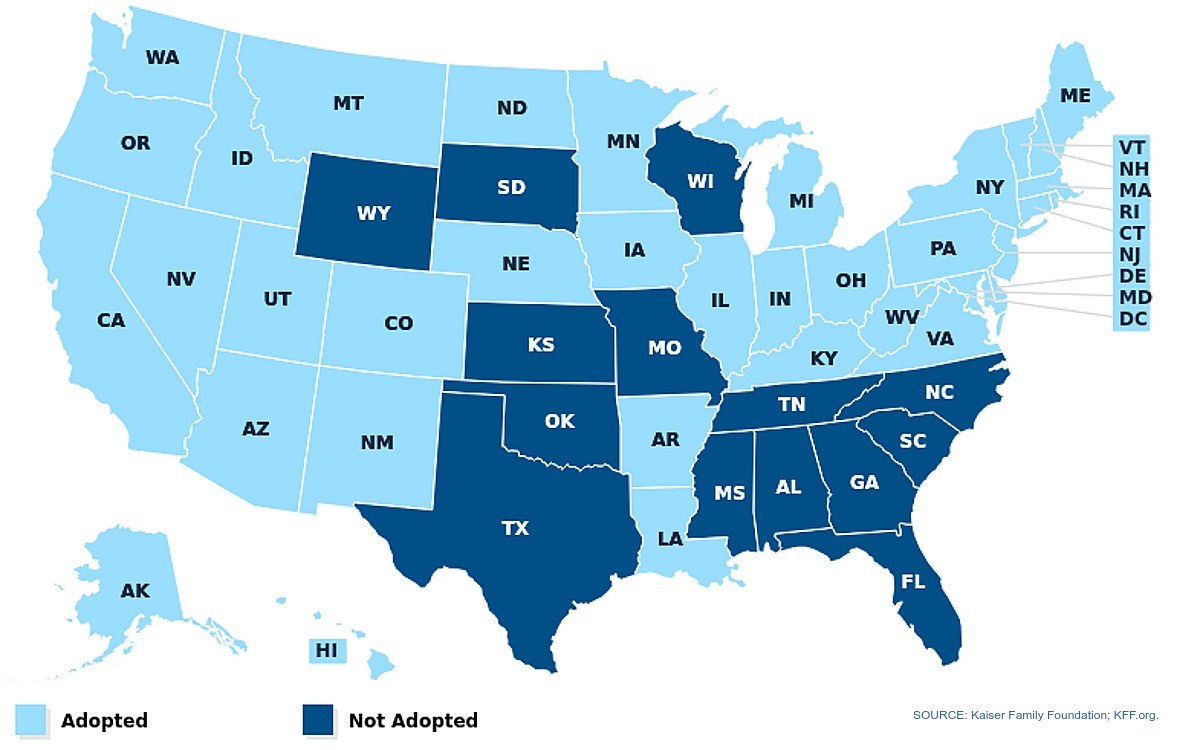

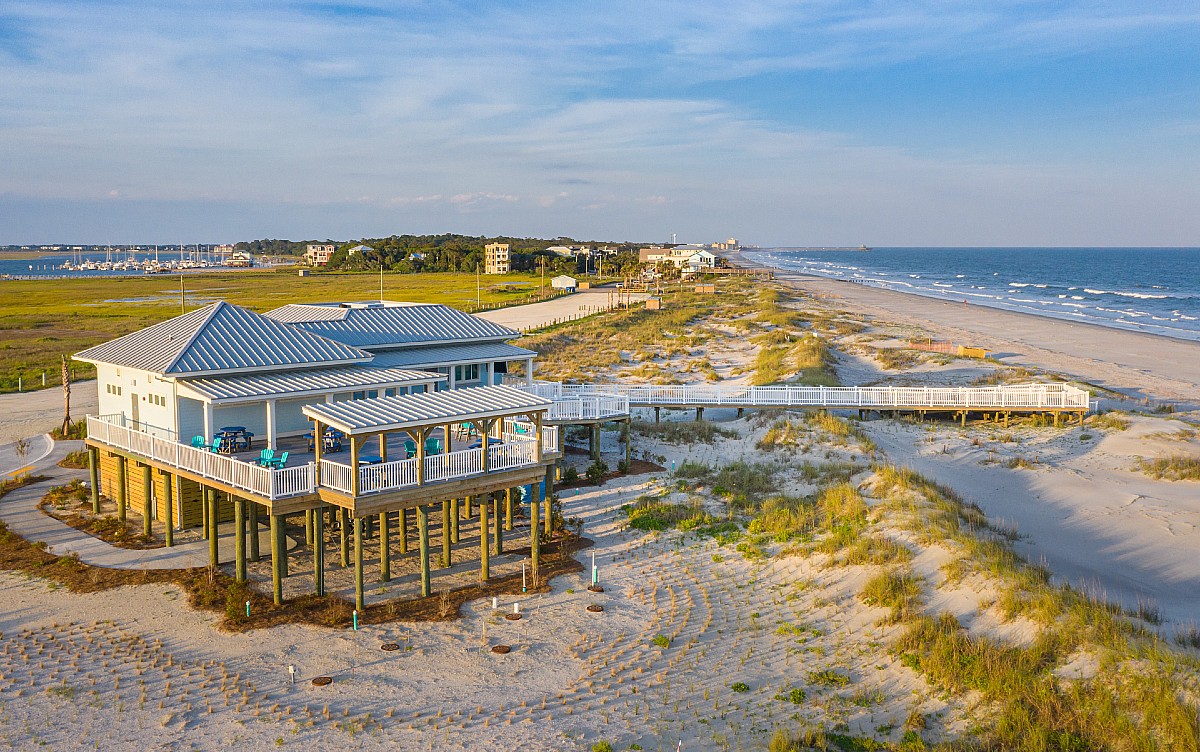
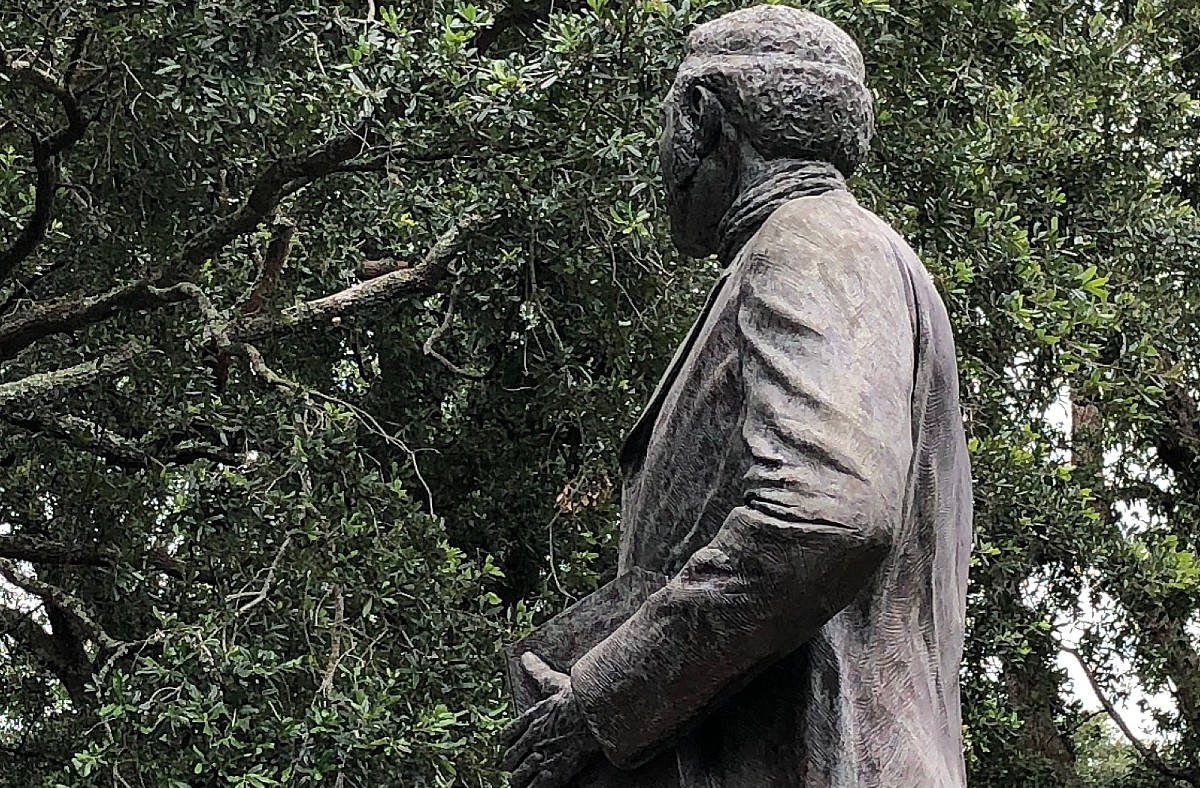
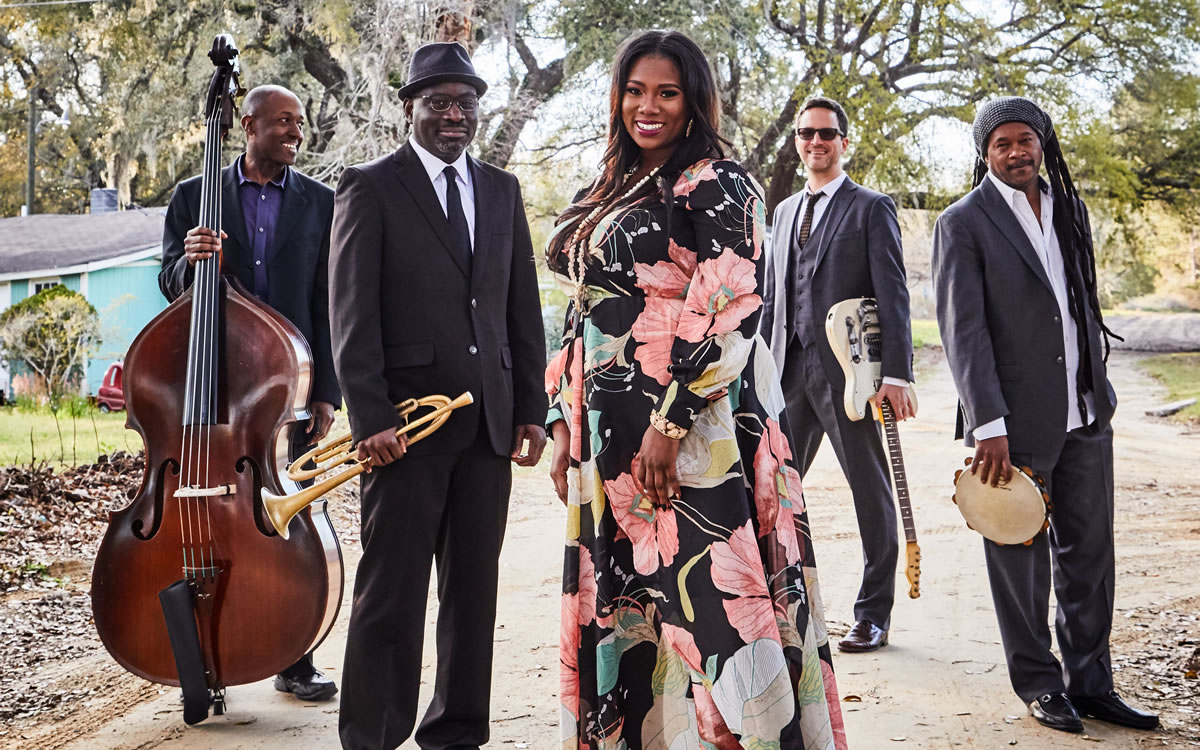
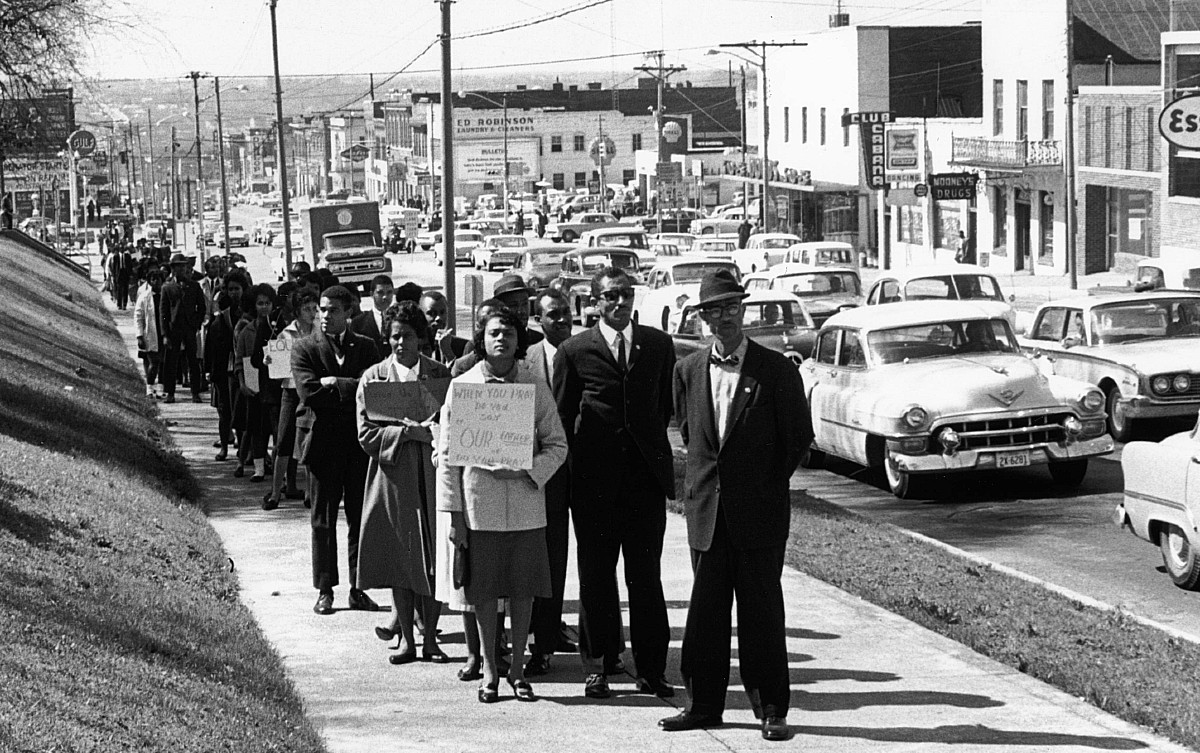

 We Can Do Better, South Carolina!
We Can Do Better, South Carolina!
























